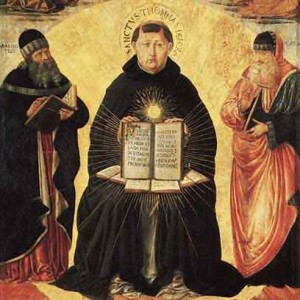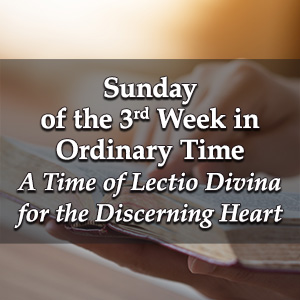Podcast: Play in new window | Download (Duration: 34:07 — 23.6MB) | Embed
Subscribe: Apple Podcasts | Spotify | Amazon Music | Android | Pandora | iHeartRadio | JioSaavn | Podchaser | Gaana | Podcast Index | Email | TuneIn | Deezer | Anghami | RSS | More

Episodio 5 – La Tercera Regla – Consolación espiritual
La Tercera Regla:
La tercera es de consolación espiritual. Llamo consolación cuando se causa algún movimiento interior en el alma, por el cual el alma llega a inflamarse de amor a su Creador y Señor; y cuando en consecuencia no puede amar ninguna cosa creada sobre la faz de la tierra en sí misma, sino en el Creador de todas ellas.
Asimismo, cuando derrama lágrimas que mueven al amor de su Señor, ya sea por el dolor de los propios pecados, ya por la Pasión de Cristo nuestro Señor, ya por otras cosas directamente relacionadas con su servicio y alabanza.
Finalmente, llamo consolación a todo aumento de esperanza, fe y caridad, y a toda alegría interior que llama y atrae a las cosas celestiales y a la salvación del alma, sosegándola y dándole paz en su Creador y Señor.
En este episodio, el Padre Timothy Gallagher, en conversación con Kris McGregor, explora la Tercera Regla de Consolación Espiritual de Ignacio. La consolación espiritual, como la define Ignacio, implica un movimiento interior en el alma que enciende el amor por el Creador.
La regla abarca varias experiencias, como derramar lágrimas por los pecados o la pasión de Cristo, un aumento de la esperanza, la fe y la caridad, y una alegría interior que atrae a las cosas celestiales.
El P. Gallagher subraya la importancia de discernir la consolación espiritual, distinguirla de la no espiritual y reconocerla como un don de Dios. Se comparten ejemplos de personas que experimentan la consolación espiritual, destacando la intensidad y la conexión entre las consolaciones no espirituales y las espirituales.
El objetivo es ayudar a los oyentes a comprender y nombrar estas experiencias cuando las encuentren en su vida espiritual.
Preguntas de reflexión de Discerning Hearts para este episodio:
1. Definir la consolación espiritual: ¿Cómo definirías la consolación espiritual basándote en la Tercera Regla de Ignacio, explicada por el P. Timothy Gallagher?
2. Experiencia personal: ¿Puedes recordar una experiencia personal de consolación espiritual en tu vida? ¿Cómo se manifestó y qué impacto tuvo en tu relación con Dios?
3. Conexión entre Consolaciones: El P. Gallagher menciona la conexión entre consolaciones no espirituales y espirituales. ¿Puedes identificar casos en tu vida en los que una consolación no espiritual sirvió de espacio para que la gracia de Dios provocara una consolación espiritual?
4. Grados de intensidad: El episodio destaca los diversos grados de intensidad de las consolaciones espirituales. Reflexiona sobre alguna ocasión en la que hayas experimentado una suave elevación del corazón frente a una elevación más intensa. ¿En qué se diferencian estas experiencias?
5. Respuesta a las consolaciones: ¿Cómo respondes normalmente a los momentos de consolación espiritual? ¿Eres consciente de estos momentos y aceptas conscientemente la luz que aportan?
6. Discernir las consolaciones: El P. Gallagher subraya la importancia de discernir entre consolaciones espirituales y no espirituales. Cómo puede este discernimiento profundizar tu vida espiritual y tu relación con Dios?
7. El papel de las lágrimas: Considera los ejemplos de lágrimas de gratitud comentados en el episodio. ¿Puedes identificarte con estas experiencias y qué papel han desempeñado las lágrimas en tu camino espiritual?
8. Virtudes de la esperanza, la fe y la caridad: Reflexiona sobre el papel de la esperanza, la fe y la caridad en tu vida espiritual. ¿Hay momentos concretos en los que hayas sentido un notable aumento de estas virtudes como resultado del consuelo espiritual?
9. Incorporar las enseñanzas: ¿Cómo puedes incorporar las enseñanzas de este episodio a tus prácticas espirituales diarias y profundizar tu comprensión de la consolación espiritual?
10. Reconocer y nombrar las consolaciones: ¿De qué manera reconocer y nombrar los consuelos espirituales contribuye a tu conciencia general y a tu compromiso en tu camino de fe?
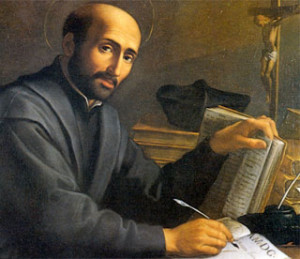
Para ver más episodios de la serie, visite: El Discernimiento de los Espíritus: Liberar a los cautivos con el Padre Timothy Gallagher; Podcast de Discernimiento de Corazones
El Padre Timothy M. Gallagher, O.M.V., fue ordenado en 1979 como miembro de los Oblatos de la Virgen María, una comunidad religiosa dedicada a los retiros y a la formación espiritual según los Ejercicios Espirituales de San Ignacio. El P. Gallagher aparece en la serie de EWTN “Living the Discerning Life: Las enseñanzas espirituales de San Ignacio de Loyola”.
Para más información sobre cómo obtener copias de los diversos libros y audios del P. Gallaghers que están disponibles para su compra, por favor visite su website: www.frtimothygallagher.org

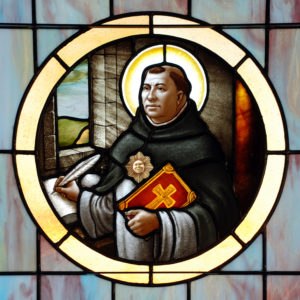
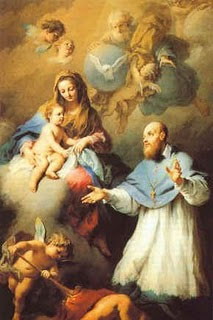 St. Francis de Sales Novena – Day 9
St. Francis de Sales Novena – Day 9
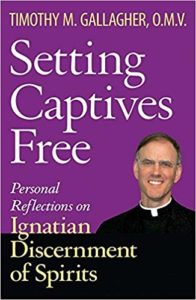
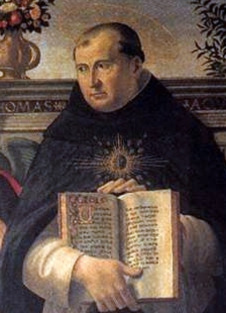
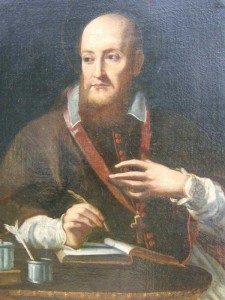 St. Francis de Sales Novena – Day 8
St. Francis de Sales Novena – Day 8
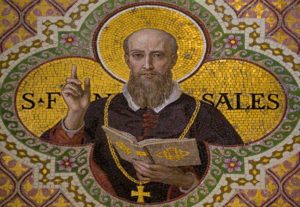 Day 7
Day 7